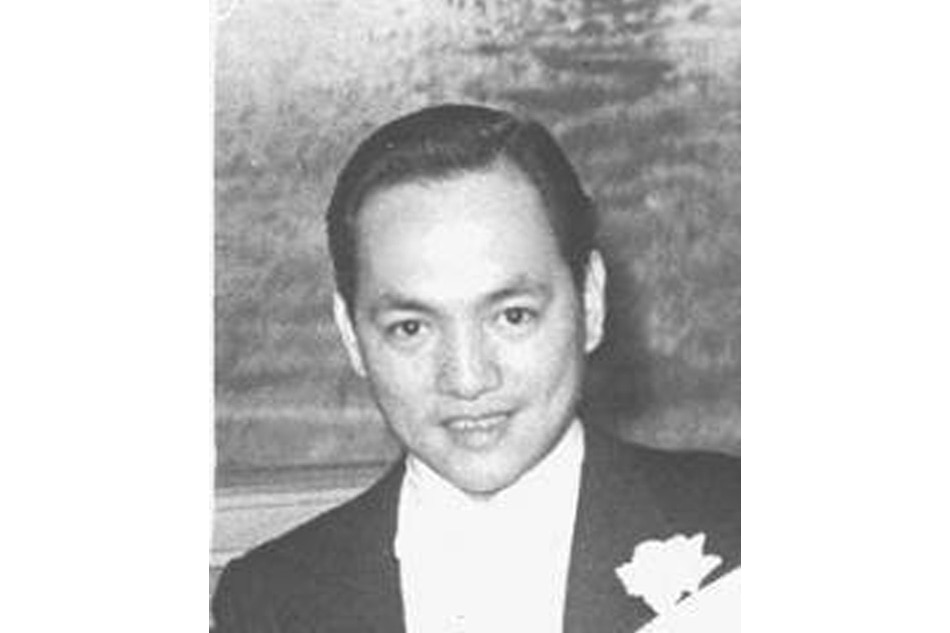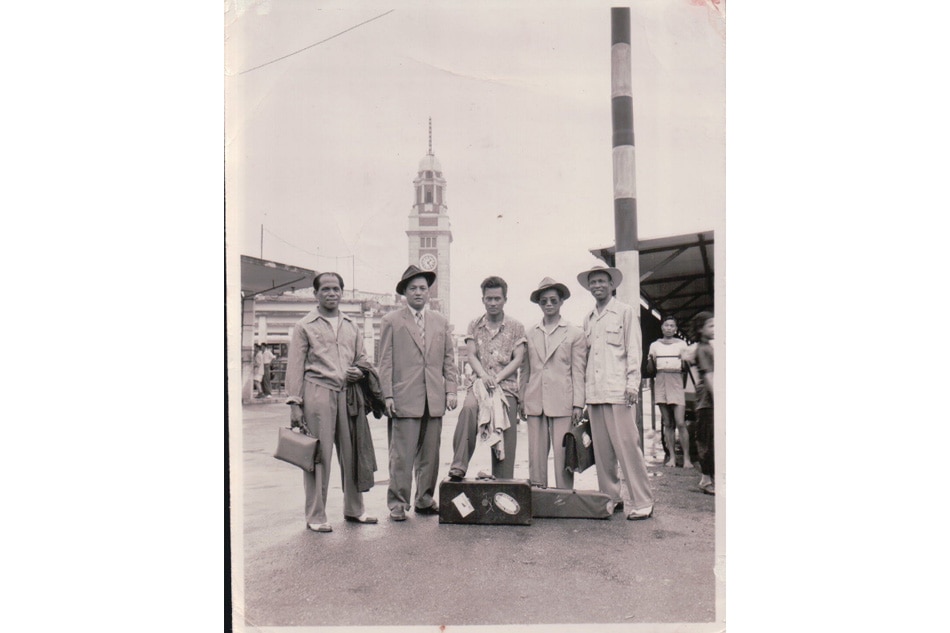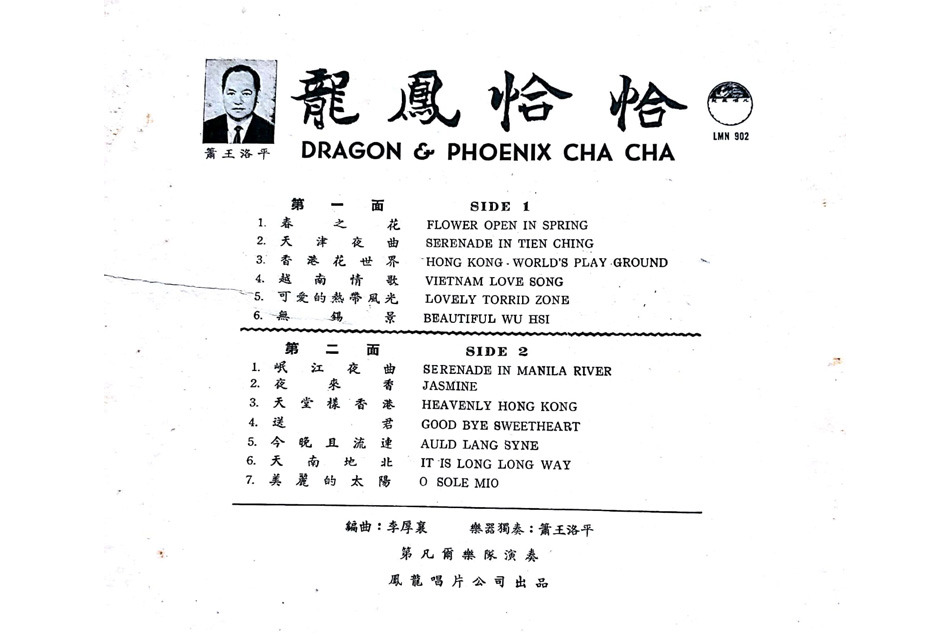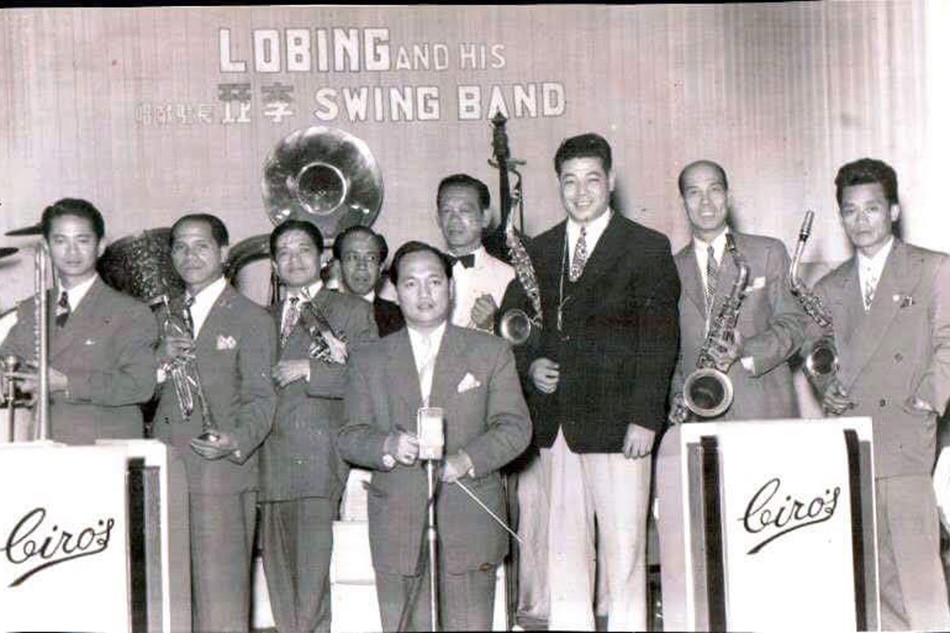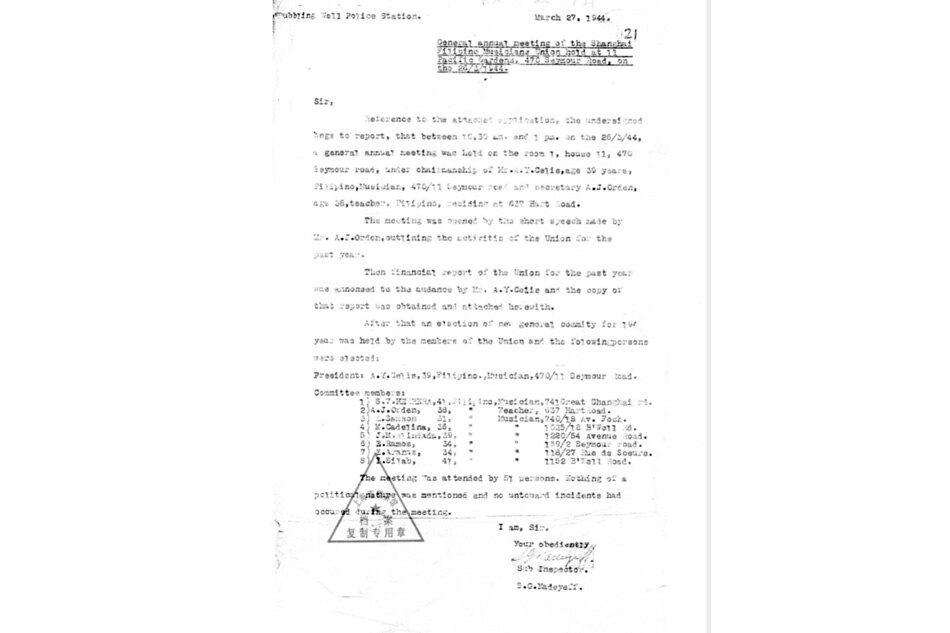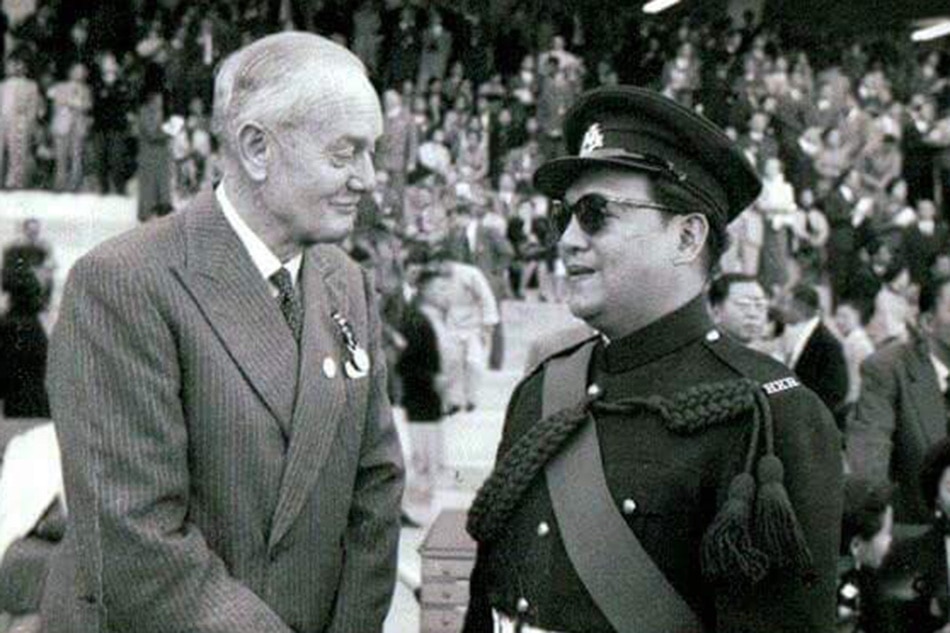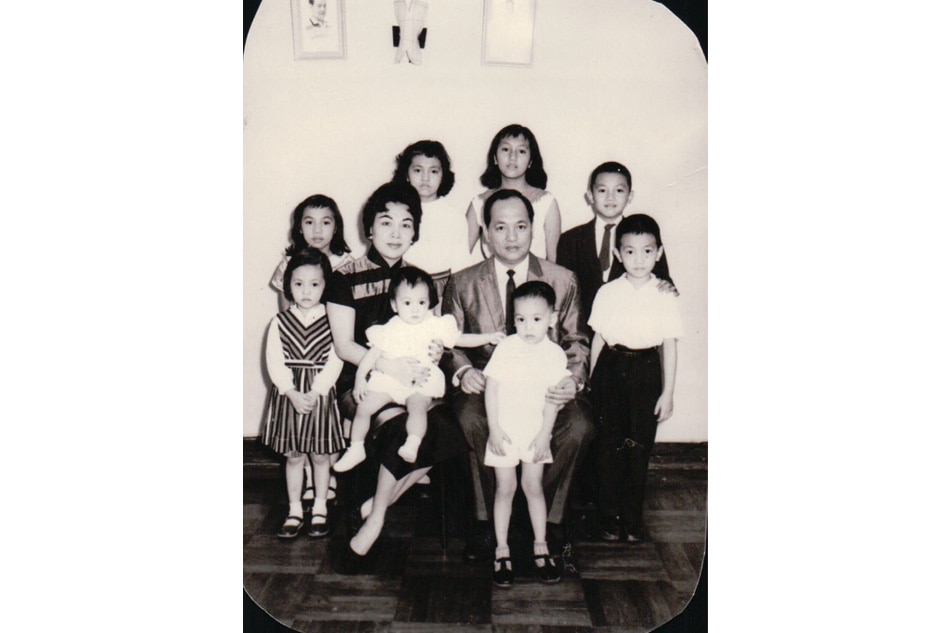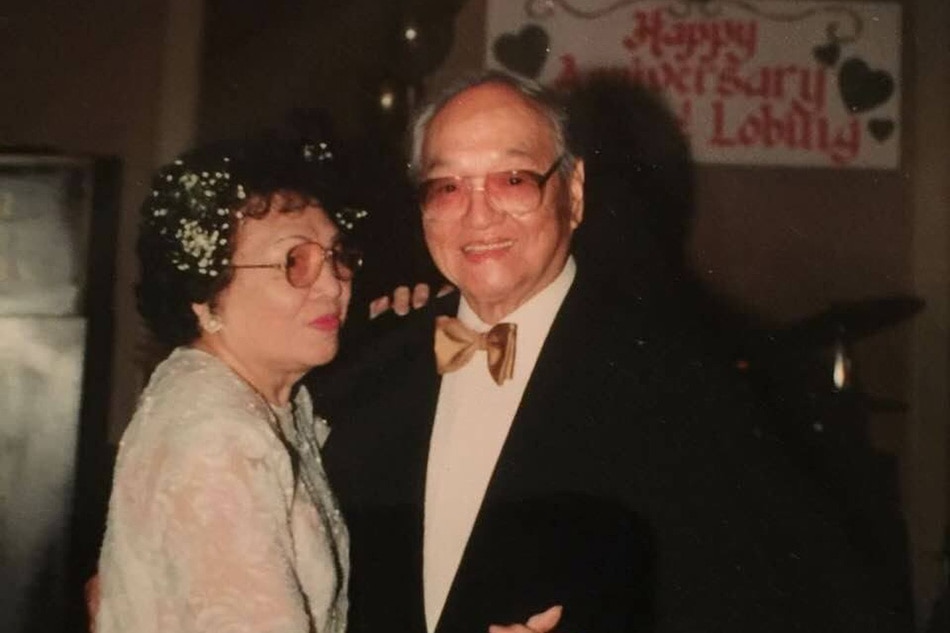Nueva Ecija's forgotten son: Lobing Samson, Shanghai's 'King of Clarinet' in Hong Kong | ABS-CBN

Welcome, Kapamilya! We use cookies to improve your browsing experience. Continuing to use this site means you agree to our use of cookies. Tell me more!
Nueva Ecija's forgotten son: Lobing Samson, Shanghai's 'King of Clarinet' in Hong Kong
Nueva Ecija's forgotten son: Lobing Samson, Shanghai's 'King of Clarinet' in Hong Kong
Jan Yumul
Published Nov 30, 2019 08:01 AM PHT
|
Updated Nov 30, 2019 09:49 AM PHT
HONG KONG—Long before he became known as the "'King of Swing' Benny Goodman of China" and a stage father to Hong Kong's iconic all-siblings group D'Topnotes, Filipino clarinetist, composer and arranger Lobing Samson was already an artist in his own right.
HONG KONG—Long before he became known as the "'King of Swing' Benny Goodman of China" and a stage father to Hong Kong's iconic all-siblings group D'Topnotes, Filipino clarinetist, composer and arranger Lobing Samson was already an artist in his own right.
Born a year before the outbreak of World War 1 on July 1, 1913 in Gapan, Nueva Ecija, Philippines, Lobing was the only son of Max Samson, a salesman in the Philippines, and Pacunda Samson, a soprano singer who later gave up her career to focus on raising her 3 children.
Born a year before the outbreak of World War 1 on July 1, 1913 in Gapan, Nueva Ecija, Philippines, Lobing was the only son of Max Samson, a salesman in the Philippines, and Pacunda Samson, a soprano singer who later gave up her career to focus on raising her 3 children.
"My dad, Mr. Lobing Samson, he left the Philippines when he was 19. Then he led a whole big band. I think they're about 8 of them to Shanghai. So... they... he at the age of 19 he left the Philippines and never went back," said Christine Samson, the third of 8 children, and former bassist and lead singer of the Hong Kong-based D'Topnotes.
"My dad, Mr. Lobing Samson, he left the Philippines when he was 19. Then he led a whole big band. I think they're about 8 of them to Shanghai. So... they... he at the age of 19 he left the Philippines and never went back," said Christine Samson, the third of 8 children, and former bassist and lead singer of the Hong Kong-based D'Topnotes.
D'Topnotes, a name thought by the Samson patriarch, is composed of siblings Vikki, Christine, Lizzie and Michael, and was one of the most popular bands that defined Hong Kong's music and entertainment scene in the 1960s. A regrouping happened where they later became "The Samson Sisters."
D'Topnotes, a name thought by the Samson patriarch, is composed of siblings Vikki, Christine, Lizzie and Michael, and was one of the most popular bands that defined Hong Kong's music and entertainment scene in the 1960s. A regrouping happened where they later became "The Samson Sisters."
ADVERTISEMENT
"When the time when we were at the top, at the height of our career, we went to open a club in Mexico City and then we left Hong Kong. That was in 1973 and we were... I was still under contract with TVB and we were doing really well then our group broke off. We added more family members into our new group. So we went to Mexico and traveled," said Christine.
"When the time when we were at the top, at the height of our career, we went to open a club in Mexico City and then we left Hong Kong. That was in 1973 and we were... I was still under contract with TVB and we were doing really well then our group broke off. We added more family members into our new group. So we went to Mexico and traveled," said Christine.
The siblings ended up being away for 10 years. The move to Canada happened while the group was touring in the United States and an opportunity popped up. In Vancouver, they continued working until they found a home there.
The siblings ended up being away for 10 years. The move to Canada happened while the group was touring in the United States and an opportunity popped up. In Vancouver, they continued working until they found a home there.
These days, three-fifths of the Samson siblings are still active in Hong Kong though away from the limelight, while the rest are in Vancouver, Canada. Meanwhile, Christine founded the Christine Samson Music Academy (CSMA), where she helped hone some of Hong Kong's biggest stars such as singer-actress Joey Yung, Miriam Yeung and G.E.M., to name a few.
These days, three-fifths of the Samson siblings are still active in Hong Kong though away from the limelight, while the rest are in Vancouver, Canada. Meanwhile, Christine founded the Christine Samson Music Academy (CSMA), where she helped hone some of Hong Kong's biggest stars such as singer-actress Joey Yung, Miriam Yeung and G.E.M., to name a few.
She is married to Romeo Diaz, former member of Danny Diaz and the Checkmates. They have 2 children, one of them is singer-songwriter and vocal coach Krystal Diaz.
She is married to Romeo Diaz, former member of Danny Diaz and the Checkmates. They have 2 children, one of them is singer-songwriter and vocal coach Krystal Diaz.
The CSMA is also one of the preferred vocal training academy by one of Asia's biggest record labels, such as Sony Music Hong Kong, Universal Music Hong Kong, and Warner Music Hong Kong.
The CSMA is also one of the preferred vocal training academy by one of Asia's biggest record labels, such as Sony Music Hong Kong, Universal Music Hong Kong, and Warner Music Hong Kong.
ADVERTISEMENT
But little has been published about Lobing's life and family ties before he left the Philippines for Shanghai, which was often referred to as "Paris of the Orient" at the turn of the 20th century. China's defeat in the First Opium War from 1839 to 1842 spurred rapid developments there, following the Treaty of Nanjing, which opened it to unrestricted foreign trade.
But little has been published about Lobing's life and family ties before he left the Philippines for Shanghai, which was often referred to as "Paris of the Orient" at the turn of the 20th century. China's defeat in the First Opium War from 1839 to 1842 spurred rapid developments there, following the Treaty of Nanjing, which opened it to unrestricted foreign trade.
The older Samson, who has also been described as “a quiet man with a humble persona,” would generously offer to arrange music for free, according to Christine. She adds, her father loved composing, but “did not keep them for some reason.”
The older Samson, who has also been described as “a quiet man with a humble persona,” would generously offer to arrange music for free, according to Christine. She adds, her father loved composing, but “did not keep them for some reason.”
"He also had a lot of charisma and humble persona on stage when he played his clarinet. And he had a beautiful voice. That's why he was so popular in the Shanghai days, according to our mom who fell in love with him when she saw him perform. He composed a beautiful song for her but [it} was never recorded," said Christine.
"He also had a lot of charisma and humble persona on stage when he played his clarinet. And he had a beautiful voice. That's why he was so popular in the Shanghai days, according to our mom who fell in love with him when she saw him perform. He composed a beautiful song for her but [it} was never recorded," said Christine.
But suffice it to say that a fair amount of documents and newspaper articles about the Samson patriarch’s contribution to the Orient's music scene in the Chinese language can be found in a library in Shanghai, which is a good vantage point for anyone interested in tracing the Filipino musician migration history around Asia, not only to the clarinetist’s life, but the lives of his equally notable peers, as well as the pioneers who came before them, pre and post-war past.
But suffice it to say that a fair amount of documents and newspaper articles about the Samson patriarch’s contribution to the Orient's music scene in the Chinese language can be found in a library in Shanghai, which is a good vantage point for anyone interested in tracing the Filipino musician migration history around Asia, not only to the clarinetist’s life, but the lives of his equally notable peers, as well as the pioneers who came before them, pre and post-war past.
Thanks to Lobing's children, his bandmates' children, their friends and the generation of fans—one of them a retired Chinese policeman who played the clarinet and had bought an old record of his idol's compositions - that followed and who believed the quiet Filipino's offline works merited internet space and are YouTube-worthy for music history buffs.
Thanks to Lobing's children, his bandmates' children, their friends and the generation of fans—one of them a retired Chinese policeman who played the clarinet and had bought an old record of his idol's compositions - that followed and who believed the quiet Filipino's offline works merited internet space and are YouTube-worthy for music history buffs.
ADVERTISEMENT
Lobing's collaborations—sans fanfare—with some of the biggest stars who had an extensive following in a burgeoning 20th century Asia, albeit fraught with the uncertainties in between 2 world wars during his time, are not to be overlooked.
Lobing's collaborations—sans fanfare—with some of the biggest stars who had an extensive following in a burgeoning 20th century Asia, albeit fraught with the uncertainties in between 2 world wars during his time, are not to be overlooked.
Some of these included working with Yao Li (sometimes spelled as Yao Lee), one of the 7 great singing stars of Shanghai in the 1930s who died in July 2019 at age 96. One of Li's songs was included in the box-office hit Crazy Rich Asians.
Some of these included working with Yao Li (sometimes spelled as Yao Lee), one of the 7 great singing stars of Shanghai in the 1930s who died in July 2019 at age 96. One of Li's songs was included in the box-office hit Crazy Rich Asians.
There was also diva Chang Loo (sometimes spelled as Zhang Lu), who was married to renowned Filipino percussionist Orlando "Ollie" Garcia Delfino. Loo passed away in 2009 while Delfino passed away in 2011. The couple had 2 sons, Orlando To and actor-singer Alex To, who won a singing award from Hong Kong-based TVB in the 1980s.
There was also diva Chang Loo (sometimes spelled as Zhang Lu), who was married to renowned Filipino percussionist Orlando "Ollie" Garcia Delfino. Loo passed away in 2009 while Delfino passed away in 2011. The couple had 2 sons, Orlando To and actor-singer Alex To, who won a singing award from Hong Kong-based TVB in the 1980s.
Lobing was also a prominent band leader at the now-abolished Ciro's Night Club in Shanghai, which was once owned by Sir Victor Sassoon, a hotel tycoon often credited for transforming Shanghai's skyline and who was fond of hosting lavish parties. (He once hosted actors Charlie Chaplin and Reginald Gardiner at the Cathay Hotel, which is now Fairmont Peace Hotel.)
Lobing was also a prominent band leader at the now-abolished Ciro's Night Club in Shanghai, which was once owned by Sir Victor Sassoon, a hotel tycoon often credited for transforming Shanghai's skyline and who was fond of hosting lavish parties. (He once hosted actors Charlie Chaplin and Reginald Gardiner at the Cathay Hotel, which is now Fairmont Peace Hotel.)
While at Ciro's, Lobing met a fan-turned-friend Louie Thu, whose wealthy family was involved in coal mining business. One night, Louie brought his whole family to watch the Filipino perform and introduced his sister Isabel to the clarinetist. The 2 hit it off and married at St. Peter's Catholic Church in Shanghai on Aug. 26, 1946. They were married for over 50 years until Isabel died in a car crash in Canada.
While at Ciro's, Lobing met a fan-turned-friend Louie Thu, whose wealthy family was involved in coal mining business. One night, Louie brought his whole family to watch the Filipino perform and introduced his sister Isabel to the clarinetist. The 2 hit it off and married at St. Peter's Catholic Church in Shanghai on Aug. 26, 1946. They were married for over 50 years until Isabel died in a car crash in Canada.
ADVERTISEMENT
In some documents shared with this author by daughter Christine, it showed that the older Samson was part of the Filipino Musicians' Union of Shanghai on Sept. 23, 1942. The documents were given to Christine by a Chinese reporter who extracted them from a library there.
In some documents shared with this author by daughter Christine, it showed that the older Samson was part of the Filipino Musicians' Union of Shanghai on Sept. 23, 1942. The documents were given to Christine by a Chinese reporter who extracted them from a library there.
The document only revealed the abbreviated names of the musicians in the executive committee, in which A.Y. Celis was the president and M.V. Javier as the vice president. S.V. Herrera was the secretary, and it had G.A. Francisco, B.F. Lucero, L. Eugenio and G. Abunso as treasurers.
The document only revealed the abbreviated names of the musicians in the executive committee, in which A.Y. Celis was the president and M.V. Javier as the vice president. S.V. Herrera was the secretary, and it had G.A. Francisco, B.F. Lucero, L. Eugenio and G. Abunso as treasurers.
Joining Lobing for the committee on music are Cora Mapa, Manuel Franco, Pabing Molina, Nick Valdivia, Igmidio Silas, Sonny Louis and Tony Diaz. The Union also had a sports committee, namely Eleuterio De Gusman, Alfredo Figueroa, Aurelio Sanches, Enrique Buertas, Crisanto Amper, Segundo Javier, Ramon De Leo and Arturo Carpio.
Joining Lobing for the committee on music are Cora Mapa, Manuel Franco, Pabing Molina, Nick Valdivia, Igmidio Silas, Sonny Louis and Tony Diaz. The Union also had a sports committee, namely Eleuterio De Gusman, Alfredo Figueroa, Aurelio Sanches, Enrique Buertas, Crisanto Amper, Segundo Javier, Ramon De Leo and Arturo Carpio.
A police report made on March 27,1944 narrated that the annual general meeting of the Union had taken place at 11 Pacific Gardens, 470 Seymour Road on March 26, 1944, and was attended by 51 people, adding it was "nothing of a political nature" and that "no untoward incident occurred."
A police report made on March 27,1944 narrated that the annual general meeting of the Union had taken place at 11 Pacific Gardens, 470 Seymour Road on March 26, 1944, and was attended by 51 people, adding it was "nothing of a political nature" and that "no untoward incident occurred."
In the study "Brokering Sonic Modernities: migrant Manila musicians in the Asia Pacific, 1881-1948,” MeLê Yamomo, an assistant professor of theatre studies at the University of Amsterdam looked into Manila musicians as “cultural brokers” where they became in-demand laborers in different Asian cities towards the end of the 19th century. The scope of his research covered the period of early globalization prior to the establishment of the nation-state to the post-colonial Asia Pacific.
In the study "Brokering Sonic Modernities: migrant Manila musicians in the Asia Pacific, 1881-1948,” MeLê Yamomo, an assistant professor of theatre studies at the University of Amsterdam looked into Manila musicians as “cultural brokers” where they became in-demand laborers in different Asian cities towards the end of the 19th century. The scope of his research covered the period of early globalization prior to the establishment of the nation-state to the post-colonial Asia Pacific.
ADVERTISEMENT
The study noted that documented employment openings for musicians in Shanghai could be traced to the 1880s, which was announced in newspapers such as La Oceañia Española in Manila.
The study noted that documented employment openings for musicians in Shanghai could be traced to the 1880s, which was announced in newspapers such as La Oceañia Española in Manila.
"In Shanghai, the first interest to form a municipal band was documented in The Shanghai Evening Courier in 1872. But it wasn’t until 1881 when a Spanish band-master, Melchior Vela, was appointed to form and lead the ensemble. Vela recruited 19 Manila musicians (1 was arrested prior to boarding the ship, and 2 young musicians brought their families).These musicians formed the municipal brass band," the study read.
"In Shanghai, the first interest to form a municipal band was documented in The Shanghai Evening Courier in 1872. But it wasn’t until 1881 when a Spanish band-master, Melchior Vela, was appointed to form and lead the ensemble. Vela recruited 19 Manila musicians (1 was arrested prior to boarding the ship, and 2 young musicians brought their families).These musicians formed the municipal brass band," the study read.
In 1930s Shanghai, Filipino jazz bands dominated the music scene. A 2006 study done by Stephanie Sooklynn Ng mentioned that Japanese jazz musicians credited their craft to the Filipino band musicians.
In 1930s Shanghai, Filipino jazz bands dominated the music scene. A 2006 study done by Stephanie Sooklynn Ng mentioned that Japanese jazz musicians credited their craft to the Filipino band musicians.
During the Chinese Revolution of 1949, which saw hundreds of thousands flee from the new China, opportunity came knocking on Lobing's door to work for a famous night club in British-ruled Hong Kong.
During the Chinese Revolution of 1949, which saw hundreds of thousands flee from the new China, opportunity came knocking on Lobing's door to work for a famous night club in British-ruled Hong Kong.
The following year, Isabel, with her 3 Shanghai-born children, including Christine, 2 nannies and a servant traveled to Hong Kong by train.
The following year, Isabel, with her 3 Shanghai-born children, including Christine, 2 nannies and a servant traveled to Hong Kong by train.
ADVERTISEMENT
That journey was unforgettable for Isabel who also found herself leaving the mainland with thousands of other Chinese trying to get into Hong Kong. Carrying a copy of her husband's work contract provided by Lobing's boss, she was said to have pleaded her way to the city, and burst into tears when an officer she encountered finally allowed her and her children to set foot on Hong Kong soil.
That journey was unforgettable for Isabel who also found herself leaving the mainland with thousands of other Chinese trying to get into Hong Kong. Carrying a copy of her husband's work contract provided by Lobing's boss, she was said to have pleaded her way to the city, and burst into tears when an officer she encountered finally allowed her and her children to set foot on Hong Kong soil.
A similar narrative is also echoed in Yamomo's findings.
A similar narrative is also echoed in Yamomo's findings.
"After the Chinese revolution of 1949, the entire culture and entertainment industry (including the Filipinos working in it) were relocated to Hong Kong where Chinese mass media was to flourish. Popular music, which fused western and Cantonese musical idioms, was created for the Hong Kong urban public. Bridging these musical cultural divides were Filipino arrangers who were able to adjust Chinese melodies to the modern western musical idiom," Yamomo's study reads.
"After the Chinese revolution of 1949, the entire culture and entertainment industry (including the Filipinos working in it) were relocated to Hong Kong where Chinese mass media was to flourish. Popular music, which fused western and Cantonese musical idioms, was created for the Hong Kong urban public. Bridging these musical cultural divides were Filipino arrangers who were able to adjust Chinese melodies to the modern western musical idiom," Yamomo's study reads.
One Filipino composer and arranger considered to be a central figure in shaping Hong Kong's Canto pop music was Vic Cristobal. Others of the same caliber include Eddie Guzman, Rudy Diaz, and the Carpio family. Fernando Carpio has been dubbed as the "Hong Kong Jazz Drum Master," while his daughter is Hong Kong singing legend Teresa Carpio.
One Filipino composer and arranger considered to be a central figure in shaping Hong Kong's Canto pop music was Vic Cristobal. Others of the same caliber include Eddie Guzman, Rudy Diaz, and the Carpio family. Fernando Carpio has been dubbed as the "Hong Kong Jazz Drum Master," while his daughter is Hong Kong singing legend Teresa Carpio.
The Carpio Music group boasts of providing entertainment to some of the most exclusive clients, including the King of Malaysia and The Hong Kong Handover ceremony.
The Carpio Music group boasts of providing entertainment to some of the most exclusive clients, including the King of Malaysia and The Hong Kong Handover ceremony.
ADVERTISEMENT
Life in Hong Kong turned out to be a memorable one, too, for the Samson family where Lobing and Isabel had their 5 other children. The household was shaped by other Chinese languages with zero to almost no Filipino language. Music, clearly, was the dominant language at the Samson household, which emanated from the patriarch of a few words.
Life in Hong Kong turned out to be a memorable one, too, for the Samson family where Lobing and Isabel had their 5 other children. The household was shaped by other Chinese languages with zero to almost no Filipino language. Music, clearly, was the dominant language at the Samson household, which emanated from the patriarch of a few words.
"And funny thing about it is, our English was not that good. Because at home, my mother spoke Mandarin. Ah, not Mandarin. Her dialect is Shanghainese and she also speaks broken Cantonese. So we were... I think our mother tongue was Cantonese. But I could understand my mother's dialect, you know," said Christine.
"And funny thing about it is, our English was not that good. Because at home, my mother spoke Mandarin. Ah, not Mandarin. Her dialect is Shanghainese and she also speaks broken Cantonese. So we were... I think our mother tongue was Cantonese. But I could understand my mother's dialect, you know," said Christine.
"So that's what happened. English was like a little bit more foreign to us. But we had to speak English with my dad. My dad was very quiet. He's always just playing music. So, we communicate always with just this song... and that song," she added.
"So that's what happened. English was like a little bit more foreign to us. But we had to speak English with my dad. My dad was very quiet. He's always just playing music. So, we communicate always with just this song... and that song," she added.
The Samson patriarch retired professionally in his 60s, but his passion was unstoppable, later joining his children on world tours where he would sometimes have cameo appearances.
The Samson patriarch retired professionally in his 60s, but his passion was unstoppable, later joining his children on world tours where he would sometimes have cameo appearances.
"After about 5 to 6 years our group started, he dedicated more of his time traveling with us, so, he was one of our members, sometimes as a special guest. We ask him to come up and then he would play some songs with us," said Christine.
"After about 5 to 6 years our group started, he dedicated more of his time traveling with us, so, he was one of our members, sometimes as a special guest. We ask him to come up and then he would play some songs with us," said Christine.
ADVERTISEMENT
"The King of Clarinet" passed away in Feb. 2009 in Vancouver, Canada, with Guinness 2000's "World's Most Durable DJ" Hong Kong-based Uncle Ray Cordeiro of RTHK, now 94, calling Lobing's passing "the end of an era."
"The King of Clarinet" passed away in Feb. 2009 in Vancouver, Canada, with Guinness 2000's "World's Most Durable DJ" Hong Kong-based Uncle Ray Cordeiro of RTHK, now 94, calling Lobing's passing "the end of an era."
Note: This interview is part of the author's short documentary project entitled "On the Record: An instrumental Hong Kong documentary," which traces the history of Filipino musicians' settlement in Hong Kong, for the 2019 ABS-CBN University Creative Documentary and Filmmaking Class.
ADVERTISEMENT
ADVERTISEMENT


